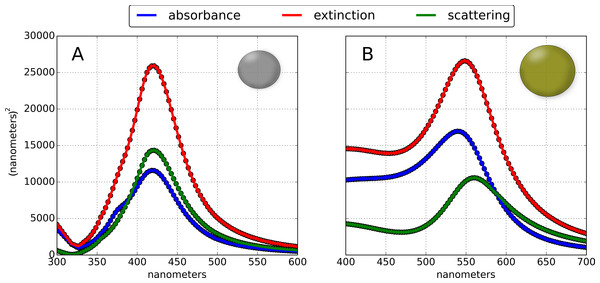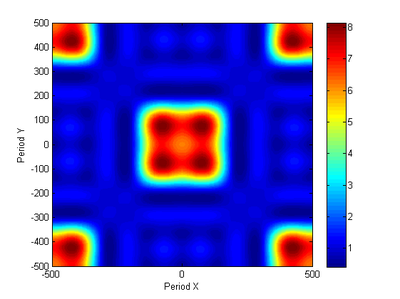|
|
 |
OTS Optical Tweezers Software
OTS is comprehensive MatLab software toolbox to work with optical tweezers by Philip H. Jones, Onofrio M. Maragò & Giovanni Volpe.

1DPyHC: A simple code for 1D plasmonic crystals
A python code to calculate the optical properties of 1D Photonic Crystals by Giovanni Pellegrini.

py_matrix: A t-matrix code for multilayer structures with arbitrary dielectric tensors
A python implementation of the transfer matrix method for multilayer structures with arbitrary dielectric tensors by Giovanni Pellegrini.

PAME
PAME (Plasmonic Assay Modeling Environment) by Adam Hughes is a graphical Python application for simulating plasmonic biosensors, particularly fiberoptic biosensors with nanoparticles.

NPL Simulations
This code by Giuseppe Toscano is an extension to the COMSOL 4.2a RF Module. It is based on the hydrodynamic model which incorporates nonlocal effects in the optical response of nanoplasmonic structures. The extension can only handle 2D structures.

ddscat-inputgen
ddscat-inputgen by Justin E Moore generates roughened spheres and spheroids geometries via Monte Carlo for DDSCAT simulation.

EMUstack is an open-source simulation package for calculating light propagation through multi-layered stacks of dispersive, lossy, nanostructured, optical media. It implements a generalised scattering matrix method, which extends the physical intuition of thin film optics to complex structures.

S4 (or simply S4) stands for Stanford Stratified Structure Solver, a frequency domain code to solve the linear Maxwell’s equations in layered periodic structures. Internally, it uses Rigorous Coupled Wave Analysis (RCWA; also called the Fourier Modal Method (FMM)) and the S-matrix algorithm.

FLAGE by Krzysztof Skorupski is a fast and accurate implementation of PC/CC aggregation (DLA) algorithms.
It is written in Java and enables to create meshes of dipoles for DDA simulations.
The generated structures can also be exported into *.pov, *.geo and other common formats.

Read more ...
RawDog is a MATLAB program by Gergely Kajtar. It calculates diffraction efficiencies of lamellar gratings, photonic crystals (1D and 2D) based on based on the Rigorous Coupled Wave Analysis (RCWA).

|
|
 |
|

